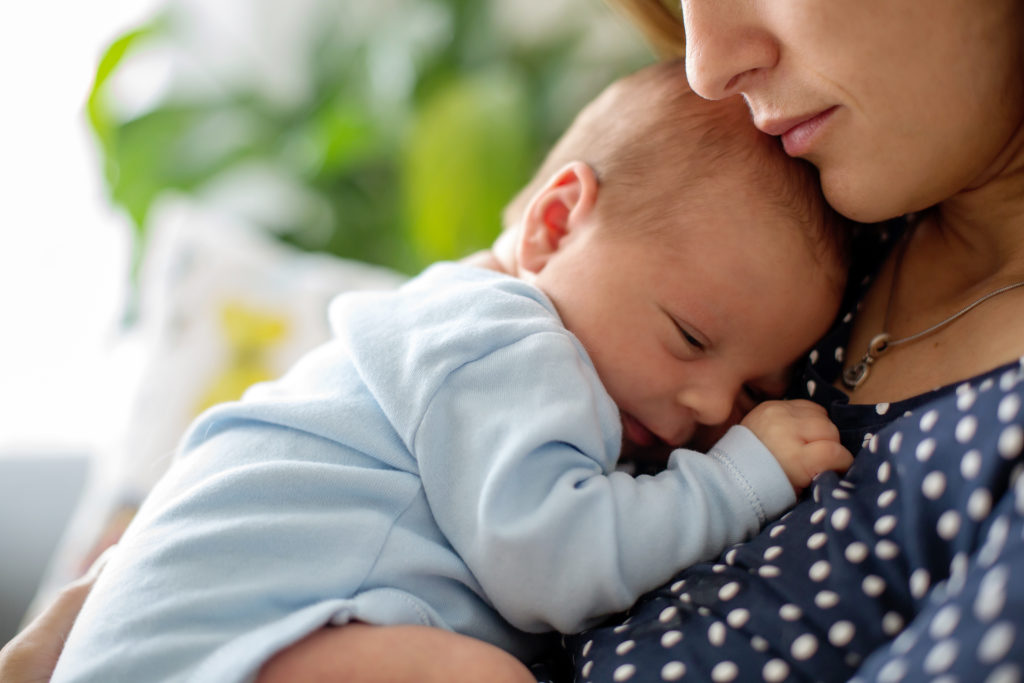Mother’s Day is just a week away, and by the time you read this, I’ll be a new mom fully immersed in sleepless nights, unstoppable wailing, and baby love. Over the last nine months, I’ve often felt baffled by the fact that throughout history, a large portion of the female population gestates human life in their bodies. Many moms also bring new life into their home through adoption. In both cases, a mom’s life is irretrievably changed. I imagine it’s something that can’t be really grasped until experienced: both beautiful and chaotic, primal and sacred.
As we look forward to celebrating all the moms we know and love on Mother’s Day, it’s also worth remembering that motherhood doesn’t happen in a vacuum. While the bond between mother and child is unique, there are webs of other human relationships upon which moms depend—fathers most importantly, but also extended friends, family, employers, faith communities, and even political bodies. These communities provide much needed support, such as watching kids, bringing meals, running errands, and providing financial assistance.
It’s no secret that America (like many other developed and developing nations) is experiencing a birth dearth—our fertility rates are well below replacement levels. I often wonder how many more women would take the plunge into motherhood if these varying layers of communities were better aligned to support them. The modern world offers an immense menu of worthwhile activities and leisure, which has been a blessing in many ways. But that has also meant that our social structures are less accommodating to motherhood and families. Motherhood isn’t as celebrated in popular culture as it ought to be: the totalizing demands of work and family are often difficult to reconcile; high living costs frequently leave lower to middle class moms in financial need; and abortion on demand often makes motherhood seem like a reckless and irresponsible choice.
The Public Discourse is home to many conversations exploring the meaning of motherhood and how the world around moms impacts their ability to thrive. Lara Ryd discusses the ways pregnancy is a “sanctifying” phase, giving each mom the chance to be a gracious and loving host to the new person in her womb. A new mom’s community is also responsible to her in distinct ways: “Those she turns to in her moments of fear, doubt, and exhaustion have the power to build up her character or to corrode it.”
Start your day with Public Discourse
Sign up and get our daily essays sent straight to your inbox.Alexandra Davis reminds us that, although present political and cultural instabilities can seem overwhelming and insurmountable, the world we bring our children into will never be perfect. It’s always worth the risk. In an interview with Serena Sigillito, Erika Bachiochi notes that if babies were more welcome in academic and other public settings, young men and women would see how normal, natural, and fulfilling family life is.
Serena also makes a powerful case that, while financial insecurity isn’t the monocausal force behind low fertility rates, pro-family policies like child tax credit can nonetheless provide important relief to parents. Similarly, Patrick T. Brown discusses what American pro-family policy should look like, noting that in a post-Dobbs world “more robust social spending on children could help create a culture in which all children are treated as worthy of not just legal protection, but social support and encouragement.”
Finally, Phil Jeffrey busts the myth that the 1950s was a golden age for moms and families—observing that “early-twentieth-century American family values aimed at individual control over the means of reproduction.” Women’s fertility became subordinate to the newly-embraced social logic of “producerism”: well-managed, efficient, and mechanized.
We hope that, as you honor the moms around you, these essays give you a chance to think more deeply about the meaning of motherhood in all its dimensions.
Thanks for reading, and cheers to all the moms out there.











